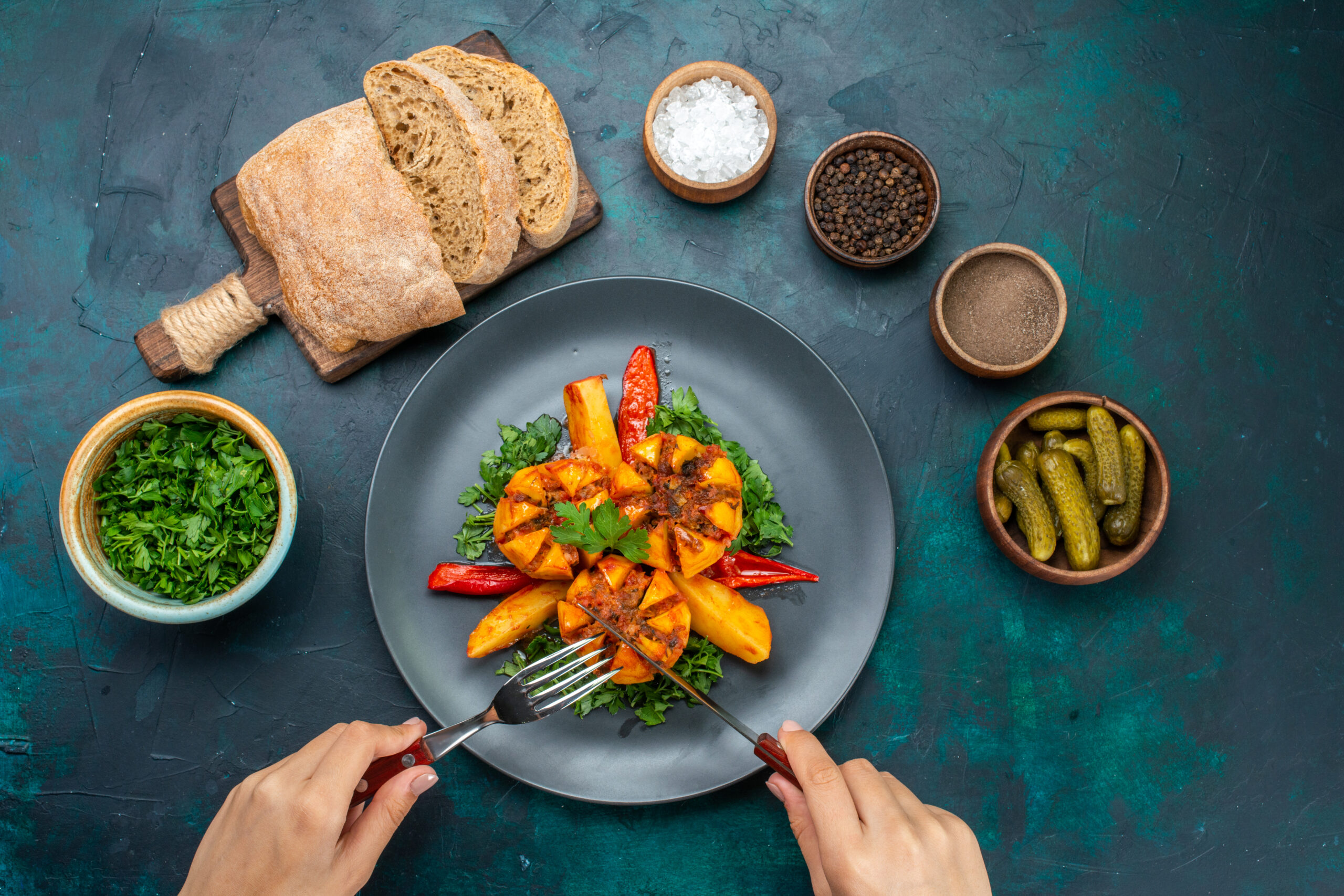
In today’s fast-paced American lifestyle, meal timing and size often get overlooked. For many of us, dinner is the biggest—and sometimes the only—real meal we have time for. After a long day of work, commuting, or chasing kids around, sitting down to a hearty dinner feels like a reward. But here’s the big question: Should dinner actually be the smallest meal of the day?
Recent studies suggest we may be doing our bodies a disservice by making dinner the star of the show. Let’s dig into the science, the pros and cons, and how we Americans might benefit from rethinking how we eat after 6 p.m.
The American Dinner Habit
In the United States, dinner is usually the largest meal of the day. It’s when families gather, when most restaurants get packed, and when food delivery apps see their highest traffic. Meals tend to be high in calories, carbs, and fat—think meatloaf, pasta, steak, casseroles, or fast food—and they’re often eaten between 6 and 8 PM.
But this eating pattern is out of sync with how our bodies process food. New research suggests that our metabolism is most efficient earlier in the day, and eating heavy at night may be linked to poor sleep, weight gain, and blood sugar issues.
Your Body Has a Clock—and It Matters
Every human body runs on what’s called a circadian rhythm, a natural 24-hour cycle that affects everything from hormones to digestion. According to science, our digestion is strongest during the earlier part of the day—especially mid-morning to early afternoon. That’s when our body is most active and ready to burn calories.
By contrast, eating a big dinner when your body is winding down can lead to sluggish digestion, increased fat storage, and disrupted sleep cycles. This is one reason experts now recommend front-loading your calories—eating more earlier and going lighter in the evening.
What the Research Says About Meal Timing
Studies in chrono-nutrition (the science of eating according to your body’s clock) suggest that eating a big breakfast and a moderate lunch, followed by a light dinner, can lead to better health outcomes.
One study published in the journal Obesity compared two groups eating the same number of calories. The group that ate their largest meal at breakfast lost more weight and had lower insulin levels compared to the group that had their biggest meal at dinner.
Another 2020 study in Cell Metabolism found that late eaters burned fewer calories and had higher blood sugar spikes than early eaters—even with identical meals.
Why Making Dinner Smaller Might Be a Game-Changer

- Better Digestion: A heavy meal at night puts extra pressure on your gut when it’s least prepared to work. A lighter dinner means less bloating, less acid reflux, and more comfort when you go to bed.
- Improved Sleep Quality: Late-night eating—especially meals high in fat, sugar, or spice—can interfere with melatonin, your body’s sleep hormone. Eating light helps you fall asleep faster and sleep more deeply.
- Support for Weight Loss: Our metabolism naturally slows down at night. Eating fewer calories in the evening means less fat storage. For those looking to lose weight or maintain a healthy BMI, cutting back at dinner can make a big difference.
- More Stable Blood Sugar Levels: Eating a large dinner can cause blood sugar spikes at night, which may lead to morning grogginess, insulin resistance, and increased cravings. Lighter dinners help keep your glucose levels more stable.
“But I’m Too Busy for Breakfast or Lunch!”
This is one of the most common reasons people in the USA overload at dinner. Between morning commutes, Zoom calls, or school drop-offs, it’s easy to skip meals early in the day and “make up for it” at night.
But skipping breakfast or lunch often leads to overeating in the evening, poor food choices, and low energy. You don’t need to cook a three-course breakfast. Even something as simple as Greek yogurt with fruit, a boiled egg and toast, or a protein shake can get your metabolism started.
Packing a solid lunch—even leftovers from the night before—can help shift some of your calorie intake earlier.
What a Light Dinner Looks Like (and Still Tastes Good)
Don’t worry—eating light doesn’t mean going hungry or nibbling on lettuce. A healthy, satisfying dinner should still include:
- Lean proteins (like grilled chicken, fish, or tofu)
- Lots of veggies
- Healthy fats (like avocado or olive oil)
- Minimal refined carbs
Here are a few easy ideas:
- Grilled salmon with roasted asparagus
- Turkey and veggie stir-fry over cauliflower rice
- Chickpea salad with olive oil and lemon
- A veggie omelet with a slice of whole grain toast
- Lentil soup with a small green side salad
Try to eat at least 2–3 hours before bedtime to give your body enough time to digest.
How Other Cultures Handle Dinner

In countries like Spain or Italy, dinner is often eaten late—but it’s usually lighter. A salad, soup, or small plate of grilled meat and veggies is more common than a three-course spread.
In traditional Ayurvedic medicine, practiced in India, the advice has long been to eat your largest meal at lunchtime and have a small, early dinner—ideally before sunset. This aligns with how your digestive system functions best during daylight hours.
Tips to Transition Without Going Hungry
Changing your eating pattern can feel overwhelming, especially if you’ve had big dinners your whole life. But small adjustments make a big difference.
- Add more protein to your breakfast and lunch to feel fuller all day.
- Keep healthy snacks handy—like nuts, fruit, or boiled eggs—so you don’t walk in the door starving.
- Plan your dinners ahead of time to avoid ordering fast food or overeating out of fatigue.
- Wind down after dinner with herbal tea or a walk instead of dessert.
Final Thoughts
So, should dinner be the smallest meal of the day? For many Americans, the answer is a resounding yes.
Eating light at night can support better sleep, easier digestion, improved energy, and even help with weight management. While it may take some effort to change long-standing habits, the benefits are worth it.
You don’t have to eat like a bird—but rebalancing your meals so breakfast and lunch get more love could be one of the simplest and smartest health moves you make.
